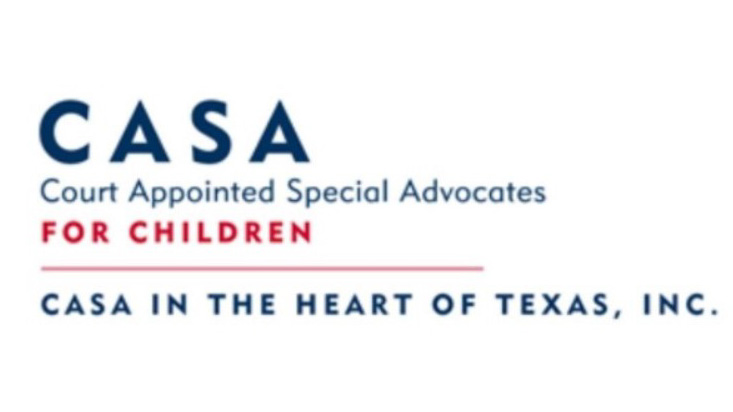
In addition to Valentine’s Day with its focus on love and connection, February is also Teen Dating Awareness Month. Both of these topics are important from the perspective of Court Appointed Special Advocates (CASA) in the Heart of Texas.
CASA in the Heart of Texas is one of the 72 local programs in Texas that recruits, trains, and supports the high-quality local volunteers who, after taking an oath before a judge, become Advocates (CASAs) for children in the foster care system. CASAs provide a consistent presence for the child as they navigate through their time in care; they spend time with and get to know the child/children in order to learn their unique needs and strengths. They facilitate nurturing relationships for the child; help find, engage and strengthen a support network for the child and family; and focus on one child or sibling group at a time. Advocates take a trauma-informed approach; address mental, physical, and educational needs; work to ensure children’s safety while in foster care; help keep children connected to their culture and cultural identity; and advocate to keep families together when safe and possible. As these advocates work for the health and well-being of children and families involved in the foster care system, they are also working for the health and well-being of our community.
As we observe Valentine’s Day by showing our affection for the important people in our lives through cards, flowers, candies or other gifts, we hope you will be mindful of children in the foster care system who may be living far away from their families, friends and other loved ones.
We also want to emphasize Teen Dating Violence Awareness this month in its juxtaposition to the healthy love we celebrate on Valentine’s Day. One out of every three U.S. adolescents experiences some type of physical or emotional dating abuse before they reach adulthood.
This statistic is even higher for youth in foster care, who are more vulnerable than their peers in so many ways. These youth have experienced trauma, often in multiple forms, and that trauma can have consequences on their physical and mental health, social skills, self-esteem and coping abilities. Some of these youth grew up in homes where domestic violence occurred—and many lack consistent, caring adult role models who can show them what healthy relationships should even look like.
Dating is an important part of human development and helps many teens feel “normal.” Feeling normal and fitting in can be especially crucial for a teen in foster care who’s having to balance homework with court dates and sibling visits. CASA volunteers or Advocates help ensure the young people they serve are informed about healthy relationships when they choose to start dating.
If you have a teen or teens in your life, start by making sure you have background knowledge on the issues and the resources available. LoveIsRespect.org has just about everything you could need to get started, including information on the warning signs of abusive relationships, consent and boundaries, sexual health, how to get help and so much more.
If you know of a teen, parent or caregiver who could benefit from speaking with a caring, well-trained peer advocate, connect them with the National Dating Abuse Helpline, a project of the National Domestic Violence Hotline, at 1-866-331-9474 (TTY: 1-866-331-8453), by texting “loveis” to 77054, or through live chat at LoveIsRespect.org.
If you are in or beyond the teen years and need to speak to someone about abuse you are experiencing in your relationship, The ARK has a 24-hour hotline and offers a variety of services related to sexual assault and domestic (or intimate partner) violence. They can be reached in Brownwood at 325-643-2699 or through arkshelther.org.
CASA in the Heart of Texas wishes you all a Happy Valentine’s Day and hopes that all will take some time to consider what each of us can do to encourage healthy relationships in our youth and communities. For more information about CASA in the Heart of Texas and how to become a part of our work, please visit CASAbrownwood.org or call 325-643-2557.